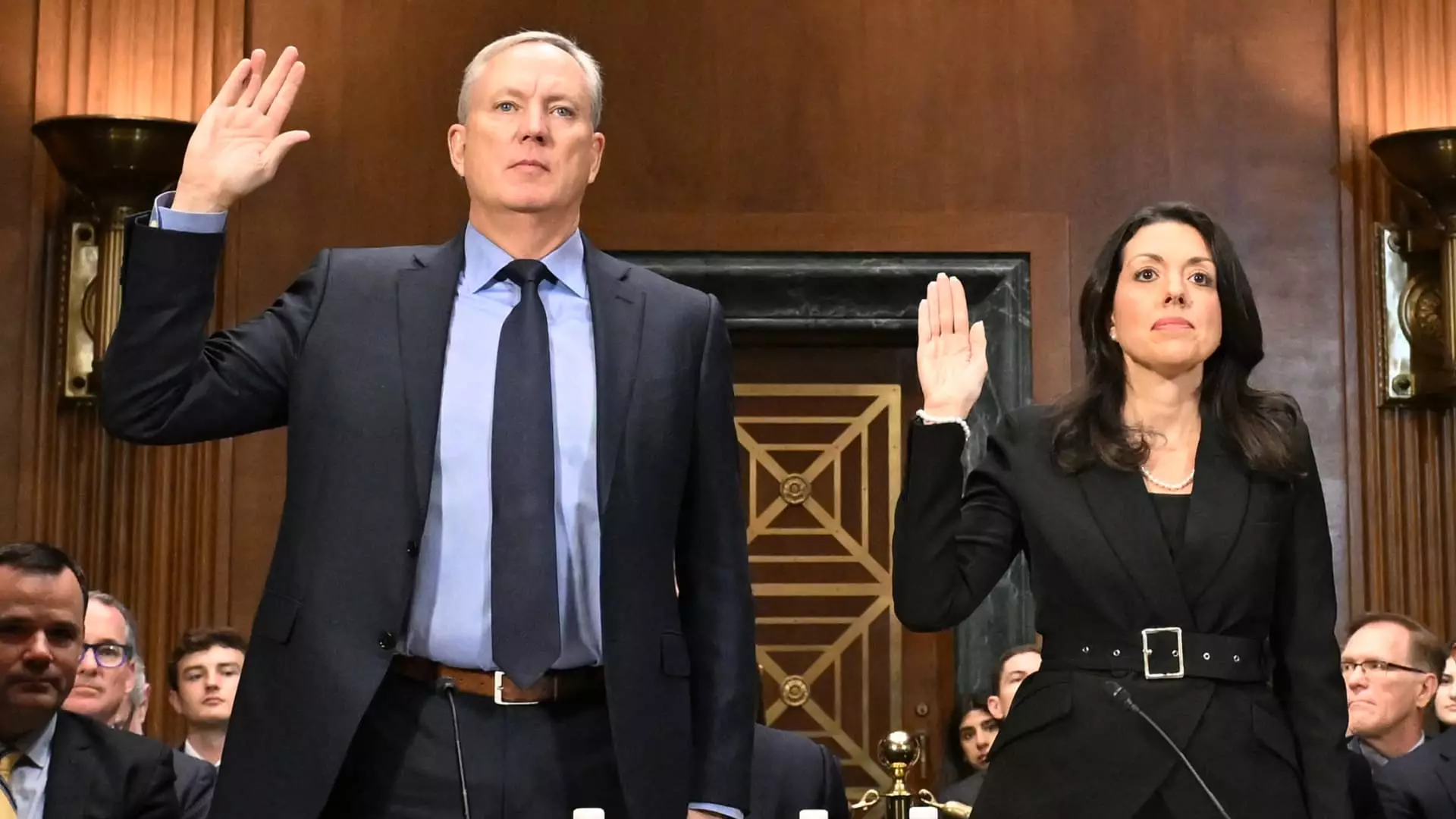In recent years, the financial landscape has witnessed increasing scrutiny of the market positions held by major financial giants like Visa and Mastercard. The crux of the concern is the alleged dominance these companies have over interchange fees, commonly referred to as swipe fees. These fees are a significant part of every credit card transaction, and as a result, they have sparked a heated debate among lawmakers, industry leaders, and advocates for small businesses.
On a Tuesday that seemed to break the usual mold of partisan division, the Senate Judiciary Committee convened to address the alleged duopoly of Visa and Mastercard. Both Democrats and Republicans found common ground, united by their concern for small businesses struggling under the weight of sky-high interchange fees. Committee Chair and Senator Dick Durbin of Illinois emphasized this unusual bipartisan alliance, stating that both conservative and liberal members recognized the urgent need for reform. This united front is particularly noteworthy given the often-divergent views that separate these groups on many other issues.
According to Durbin, this duopoly has significant economic implications; the market share held by Visa and Mastercard—70% to 80%—imposes an almost insurmountable challenge for merchants. It effectively leaves them powerless when attempting to negotiate fees, which can represent their second-largest expense after employee wages. In 2023 alone, these companies accrued over $100 billion in fees from merchants, exemplifying the financial strain on retailers and, ultimately, the consumers who shop at their stores.
To address the fiscal pressures imposed on merchants, Durbin, alongside Republican Kansas Senator Roger Marshall, has co-sponsored the bipartisan Credit Card Competition Act. This act aims to dismantle the excessive control held by Visa and Mastercard by mandating that banks with assets exceeding $100 billion offer alternative payment network options alongside the established giants. This legislation seeks to create a competitive environment where merchants can choose a lower fee alternative or continue with the dominant networks.
Supporters of the act argue that increased competition will ultimately benefit both merchants and consumers by fostering lower prices. However, the act is not without its opponents. Visa’s senior advisor, Bill Sheedy, fiercely defended the current interchange model during the hearing, claiming that fees are structured to ensure security and service assurances for consumers. He argued that the implementation of new technology could help in reducing these costs but stressed that the unwavering demand for these services has led to the persistent fees.
Visa and Mastercard executives have raised concerns regarding the potential ramifications of the proposed legislation. They argue that the Credit Card Competition Act could dilute consumer control over how they make payments, limit the competitive landscape by favoring certain payment networks, and impose technological sharing that could harm innovation.
Mastercard’s President of Americas, Linda Kirkpatrick, pointed to past instances, such as the Durbin amendment of the 2010 Dodd-Frank Act, which attempted to regulate interchange fees on debit cards. She warned that such regulations had previously led to increased fees and reduced choices for consumers, ultimately harming the very competition they sought to encourage.
Broader Economic Implications
The implications of high swipe fees extend far beyond the realm of business and finance. According to the National Retail Federation, the burden of these fees is passed on to consumers in the form of higher prices. Roger Alford, a law professor at Notre Dame, highlighted that the average American spent an astonishing $1,100 in swipe fees last year—an amount exceeding expenditures on pets, coffee, or alcohol. This startling figure raises critical questions about the true costs of consumer spending and the extent to which interchange fees play a role in the economic choices faced by households.
Despite some efforts toward reform, such as a rejected $30 billion settlement intended to reduce swipe fees, the landscape remains contentious. Visa is currently embroiled in a legal battle with the Justice Department under allegations of maintaining an illegal monopoly over debit card networks. The ongoing scrutiny of these business practices underscores the complexities and possible repercussions of unchecked corporate control over essential aspects of consumer finance.
As discussions continue about the future of payment systems and the role of marketplace giants, it becomes increasingly clear that a balance must be struck. Policymakers, regulators, and industry stakeholders must collaborate to foster a competitive environment that ultimately benefits consumers while ensuring that small businesses can thrive without facing undue financial burdens. The ambitious proposals currently on the table hint at a potential shift in the payment processing landscape, but whether this will come to fruition remains to be seen. In the intricate web of finance, the outcome of this debate will determine the viability and competitiveness of America’s business ecosystem for years to come.

